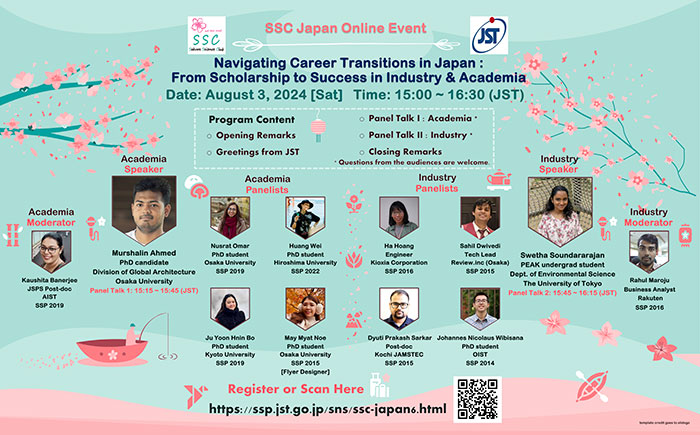Events
2024 SSC Japan Event Featured Hidden Hurdles in Japan and How They Were Overcome
The SSC Japan zoom event of August 3, 2024 was brought from JST’s Science Plaza in Tokyo. 138 attendees participated online and the event received many positive responses from the attendees. The tightly-knit team of SSC Japan coordinators brought an information-packed session on “navigating career transitions in Japan,” featuring two main guest speakers.
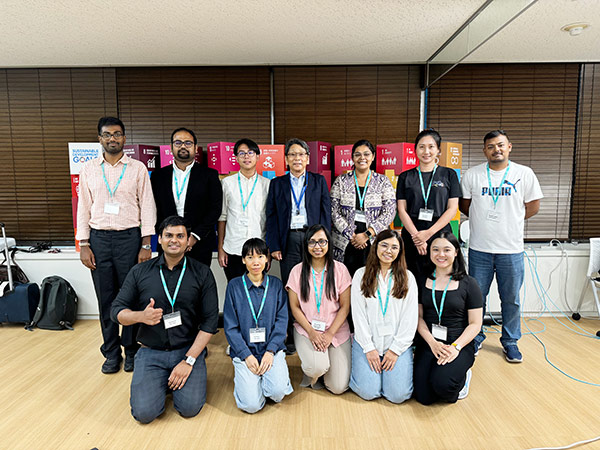
To commence the event, SSC Japan’s new President, Dr. Kaushita Banerjee who is currently a postdoctoral fellow at AIST (National Institute of Advanced Industrial Science and Technology), warmly welcomed all the participants and emphasized that the sessions focus on why and how the speakers would like to stay and continue their journey in Japan . Dr. Dyuti Prakash acted as the main MC of the event.
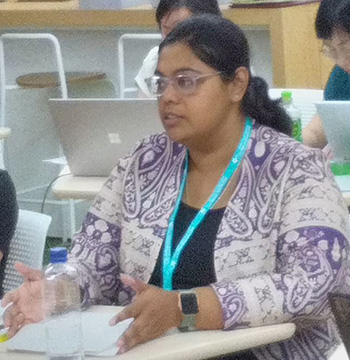
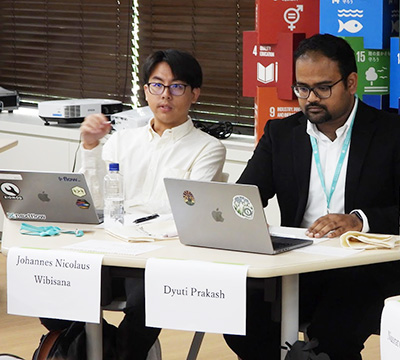
Session on Academia
Guest Speaker – Mr. Murshalin Ahmed
PhD Candidate, Division of Global Architecture, Graduate School of Engineering,
Osaka University
In the first session moderated by Dr. Kaushita, Mr. Murshalin Ahmed spoke of his journey from Bangladesh to Japan. Mr. Murshalin, who had majored in seismic engineering in his undergraduate years at BUET (Bangladesh University of Engineering and Technology). At the time, he had the opportunity to take part in a collaborative project to conduct seismic analysis for Dhaka city buildings. The project was conducted with BUET, government bodies in Bangladesh, and the University of Tokyo. Although he is not an SSC alumnus, this collaboration became a window for him to come to Japan in 2017. Later, in 2018, he revisited Japan to further his research on evaluating buildings/structures and how to retrofit them after natural disasters. These projects were conducted with Tohoku University and Osaka University. Because Japan has one of the best technologies and knowledge related to earthquakes, he chose to further his graduate studies in Japan.
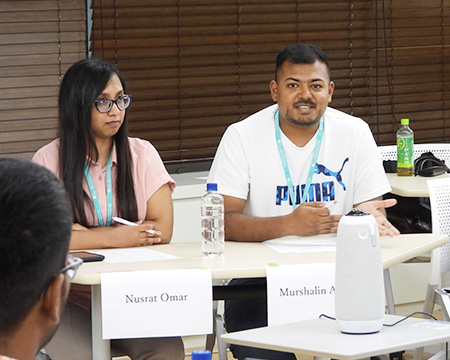
<The Two Tracks of MEXT Scholarship>
Mr. Murshalin had initially hoped to apply for the “embassy-recommendation” track of MEXT* scholarship, but because of ill timing, he opted for the “university-recommendation” track suggested by his Japanese professors. One of the difficulties he faced was the screening. Mr. Murshalin specializes in structural engineering, but because Japanese professors of architectural engineering conducted his interviews, some of the questions focused on topics that were outside of his expertise. He overcame these hurdles through elaborate preparations and got accepted as a MEXT scholar. *MEXT – Ministry of Education, Culture, Sports, Science and Technology
Coordinators Ms. Ju Yoon Hnin Bo and Ms. May Myat Noe commented that the embassy track requires the submission of a research plan, a test in English/Japanese and an interview. Only after you pass the first screening, you can start contacting the Japanese professors. After you get accepted by the professor, the university conducts a second screening to decide if they will accept you as a MEXT scholar. The process starts every April at your local Japan embassy and the result will come out in February.
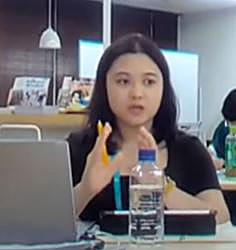
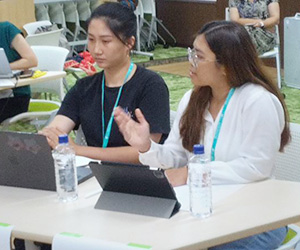
<During and After the Pandemic>
Mr. Murshalin’s next hurdle was the pandemic, which disabled regular access to the lab and campus. This greatly affected his doctoral thesis, but he continued his studies even after the MEXT full scholarship stopped in September 2023. By undertaking the role of TA or tutor for international students and teaching English outside the university, he got by financially.
Ms. Nusrat Omar added that academic positions like TA, or working for a partner company introduced through her lab professor allowed her to work in English. “Almost all the labs work with some kind of industry so if you have the skills, you can try to find work within the academic scope if you don’t speak Japanese,” she suggested.
After obtaining his PhD, Mr. Murshalin expressed his wish to assume a post-doctoral position. In view of this, Dr. Kaushita introduced the two-year JSPS post-doctoral program. “Besides JSPS, many institutes in Japan provide their own fellowships, so it is always worth checking,” she advised.
Session on Industry
Guest Speaker – Ms. Swetha Soundararajan, SSC Member and Graduate of the University of Tokyo, PEAK Program (Environmental Science)

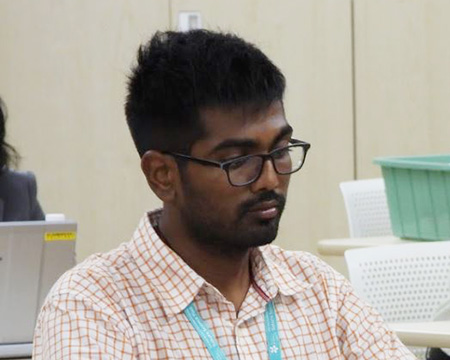
The second session moderated by Mr. Rahul Maroju, shed light on how Ms. Swetha Soundararajan found her job at an environmental consultancy firm, Satisfactory, based in Japan. After participating in the Sakura Science High School Program in 2019, Ms. Swetha got inspired to do her undergraduate studies in Japan. She was accepted at the University of Tokyo (UoT) in 2020. After the pandemic, she arrived in Japan in 2022. Although she is not a MEXT student, she was awarded the Rotary Yoneyama Memorial Undergraduate Course Scholarship after entering UoT. She participated in extensive activities, such as the on-campus club tackling environmental issues, volunteer work to boost vegan options at UoT, part-time work, as well as participating in international conferences. As a result, she won a job offer from the company of her choice.
<Job Hunting Support─The Juku>
Additionally, Ms. Swetha found the Tokyo Career Forum for international students to be very helpful. When she first started job hunting, she did not get positive results. But after she got help with her application documents from a specialized support school─the so-called “juku”─, she was able to pass screenings more often. In the end, she succeeded in getting three job offers: from a recruitment company; a food service company; and the environmental consulting firm.
<On Japanese Language>
For highly specialized jobs, both the recruitment and work itself are conducted in English only. But if the job is not technical, Japanese language skills and university experience become essential, because the Japanese companies place more importance on whether your personality is a good match to the company culture. “If you can start a new life as a student abroad, you are more than capable of overcoming the challenges of job hunting,” Ms. Swetha reflected.
When questioned about the actual level of Japanese required, Ms. Swetha replied that for highly specialized jobs, N4 or N5 would suffice. For regular non-technical jobs, N2 or N1 would be ideal, but companies rarely ask your level of JLPT.* If you can communicate smoothly, the level (N5-N1) does not matter. *JLPT-Japanese Language Proficiency Test
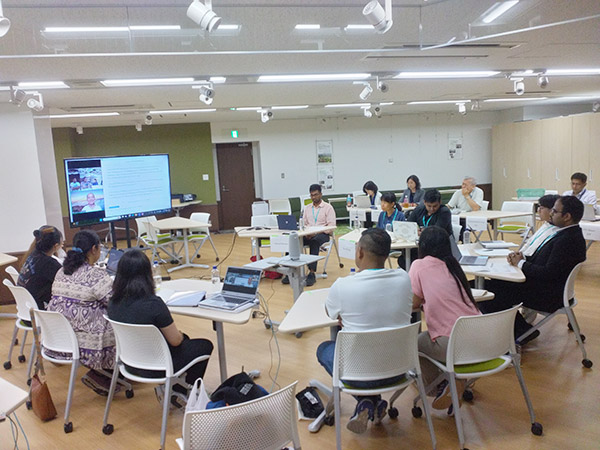
Q&A Session
In the Q&A session moderated by Dr. Dyuti, many questions were raised through the chat. One attendee asked “Do we get to choose our university in the MEXT undergrad embassy recommendation?”
Mr. Sahil Dwivedi, who had been a MEXT Undergrad student replied that one must first attend an intensive Japanese course. After that, you will take technical exams related to your field. At this point, you can choose 12 universities in the order you wish to join. Then, MEXT will make the decision depending on the scores of 50 or so applicants worldwide. “The higher score you have, the better probability of getting into the university of your choice,” he pointed out.
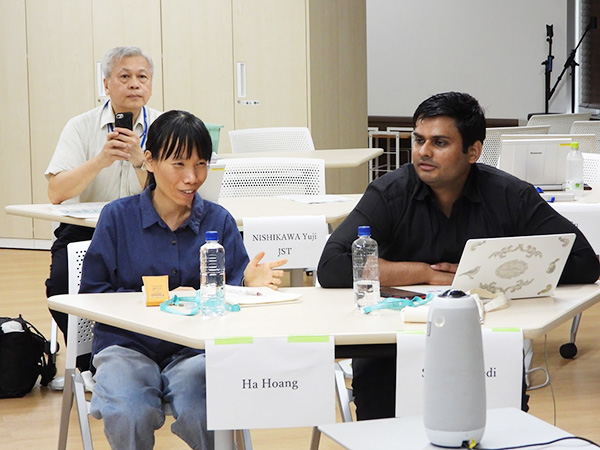
To conclude the event, Dr. Dyuti gave the closing remark. In this event, all coordinators carefully curated the content, so that the main speakers could delve deeper into their personal journeys. There were positive comments from participants, and 70% of survey respondents stated that the event “triggered their motivation to study or work in Japan.” JST and the secretariat wish to congratulate and thank SSC Japan for their thorough preparation ranging from content planning to promotion.
